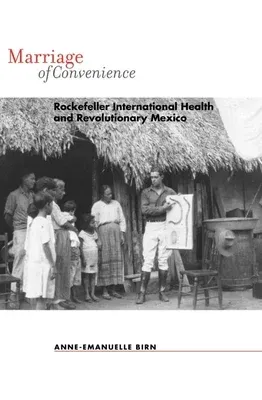Offers a nuanced analysis of the interaction between the Rockefeller
Foundation's International Health Division and Mexico's Departamento de
Salubridad Pública as they jointly promoted public health through
campaigns against yellow fever and hookworm disease, organized
cooperative rural health units, and educated public health professionals
in North American universities and Mexican training stations.
In January 1921, after a decade of bloody warfare, Mexico's new
government found an unlikely partner in its struggle to fulfill the
Revolution's promises to the populace. An ambitious philanthropy, born
of the wealth of America'smost notorious capitalist, made its way into
Mexico by offering money and expertise to counter a looming public
health crisis. Why did the Rockefeller Foundation and Revolutionary
Mexico get together, and how did their relationship last for thirty-plus
years amidst binational tensions, domestic turmoil, and institutional
soul-searching?
Transcending standard hagiographic accounts as well as simplistic
arguments of cultural imperialism, Marriage of Convenience offers a
nuanced analysis of the interaction between the foundation's
International Health Division and the Departamento de Salubridad Pública
as they jointly promoted public health through campaigns againstyellow
fever and hookworm disease, organized cooperative rural health units,
and educated public health professionals in North American universities
and Mexican training stations. Drawing from a wealth of archival sources
in bothMexico and the United States, Birn uncovers the complex
give-and-take of this early experience of international health
cooperation. Birn's historical insights have continuing relevance for
the rapidly evolving world of global health today.
Anne-Emanuelle Birn is Canada Research Chair in International Health at
the University of Toronto.

